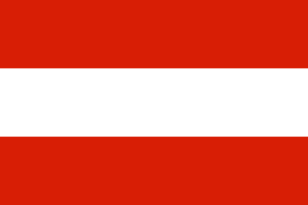NorthC and Legrand: a new class of AI-enabled infrastructure
Read Time: Approx. 6 Min

What do you do with a low-density environment when high density is required? This was the challenge facing data centre operator NorthC. Its response? Find the right partner.
With Legrand, NorthC upgraded its data centre to deliver scalable, energy-efficient, and reliable high-density infrastructure tailored for the demands of artificial intelligence (AI), big data, and high-performance computing (HPC) workloads. Today, NorthC is an AI enabler.
The Challenge
NorthC, one of Europe's leading providers of regional data centres, operates Swiss data centres in Münchenstein (Basel), Biel/Bienne (Bern) and Winterthur (Zurich). When a customer requested AI and HPC capacity, this meant NorthC needed to rapidly upgrade its existing low-density environment at its Münchenstein site near Basel. NorthC Site Manager Wolfgang Voigt was faced with a challenge: how could NorthC convert the data centre within the given timeframe of six months to meet the customer's requirements?
AI servers can consume several hundred watts per unit, with peak loads pushing this energy demand even higher. This presents providers with completely new challenges, especially in terms of power supply and cooling. While traditional air cooling is sufficient in many conventional data centres, this is often inadequate for AI workloads. So how can cooling capacities be increased to cope with the requirements of AI and HPC applications, and within such a tight timeframe?

Wolfgang Voigt: "The traditional concept of cooling, where cooling and power are separated and you try to keep water out of the data hall, is no longer valid today. In addition, the new cooling concept presents DC operating with new challenges that call for changes to processes and employee behaviour. Therefore, we needed to find a supplier that could deliver innovative cooling systems quickly and reliably. That's how our great partnership with Legrand began."
Why AI and HPC require new cooling technologies
The scale and complexity of AI and HPC models are growing rapidly. These workloads increase thermal loads and generate far more heat than conventional servers, meaning that cooling has become a key factor in infrastructure performance and reliability, requiring customised and flexible cooling solutions.
- Rising energy consumption due to powerful hardware: AI models run on specialised hardware (e.g. NVIDIA or Google TPUs).
- Sustained high loads with intensive peaks: AI training and HPC simulations require high-performance computing over long periods of time, with sudden load peaks when processing large datasets.
In conventional data centres, energy consumption typically ranges between 3 and 12 kW per rack. In AI environments, this can easily rise to 100 kW per rack. This leads to a higher continuous load as well as peak loads during intensive AI training phases. In this complex environment, innovative cooling solutions are at the top of the sustainability agenda.
The Solution
Market research led NorthC to select USystems’ ColdLogik rear door heat exchangers (RDHx) – an advanced, energy-efficient cooling solution from Legrand’s specialist brand, USystems. This cooling method for server racks involves attaching a heat exchanger to the rear of a rack to dissipate the heat generated by the servers. The hot air from the servers is passed through a heat exchanger, where it is cooled by water. Since water can absorb over 3,000 times more heat than air, this results in huge efficiency gains. The cooled air is then fed back into the room.
For NorthC, adopting the energy-efficient RDHx technology has been a game-changer: enabling high-density computing, while reducing energy consumption, making it a compelling choice to meet AI and HPC requirements.

Colin Rowlands, European Technical Support, USystems, explains: "Installing the basic infrastructure for our cooling solutions in a data centre, whether in the entire data centre or just part of it, makes upgrading easy. The joint solution, which we are very proud of, provides NorthC with future-proof and flexible infrastructure."
Wolfgang Voigt praises the rapid, efficient cooperation with Legrand. The solution was also modified and tailored to NorthC's needs. Colin Rowlands: "This specific focus on customer needs has led to many deep and lasting relationships around the world. In addition to NorthC, in Switzerland CERN has also placed its trust in us, for example." The rear door heat exchangers were installed while operations were ongoing. Looking back, Wolfgang Voigt says it was like "open-heart surgery". Despite this challenge, the project was completed to everyone's full satisfaction and without any major issues. Rowlands recalls: "Well, we managed to juggle everything on their behalf. That’s part and parcel of our partnership!"
The Benefits
 NorthC’s Münchenstein (Basel) 1 site is now AI- and HPC-enabled. The upgraded infrastructure supports GPU-driven clusters, hybrid cloud environments and advanced connectivity for data-intensive operations. This means that NorthC can now offer its customers a high-speed environment with low latency, in complete compliance with regulatory requirements (e.g., data residency) and Swiss data laws. Customers consequently have access to a core-optimised data centre that supports high-density environments, alternative cooling methods, fast networks, and a sustainable power supply.
NorthC’s Münchenstein (Basel) 1 site is now AI- and HPC-enabled. The upgraded infrastructure supports GPU-driven clusters, hybrid cloud environments and advanced connectivity for data-intensive operations. This means that NorthC can now offer its customers a high-speed environment with low latency, in complete compliance with regulatory requirements (e.g., data residency) and Swiss data laws. Customers consequently have access to a core-optimised data centre that supports high-density environments, alternative cooling methods, fast networks, and a sustainable power supply.
The infrastructure can grow alongside customers' needs. Since cooling accounts for the bulk of power consumption in a data centre, this is where the greatest improvements in power usage effectiveness (PUE) can be achieved.
Colin Rowlands highlights the energy-saving potential: "If you equip a data centre with rear door heat exchangers, you should be able to reduce energy consumption by around 80%. And don't forget that a data centre runs 24 hours a day, 365 days a year. If you can cut 80% of your cooling costs, that's huge, isn't it?" He concludes: "Our collaboration with NorthC has been and continues to be excellent. Not only is our system extremely robust, but our partnership is too."
And the key results?
- Energy consumption reduced by around 80%
- Improved PUE
- Smaller carbon footprint
- Use of existing infrastructure
- Rapid rollout
- Further expansion possible
- More flexibility for customers
Next steps

At the Münchenstein (Basel) 1 site, the first racks have already been equipped with rear door heat exchangers, with more to follow as customer demands grow. As Wolfgang Voigt explains: "New requirements from our customers are coming thick and fast these days, almost always ad hoc in nature. We're ready to step up whenever a customer needs us."
Looking ahead, he sees a combination of rear door and direct chip cooling as the future. NorthC data centres will be designed with flexibility in mind to meet all customer needs, whether conventional setups, rear door cooling, or direct chip cooling solutions. Here too, NorthC will continue to rely on its successful partnership with Legrand for market insight and future-ready solutions.
Colin Rowlands, European Technical Support, USystems, a Legrand brand: "If you equip a data centre with rear door heat exchangers, you should be able to reduce energy consumption by around 80%."
Wolfgang Voigt, Site Manager, NorthC: "New requirements from our customers are coming thick and fast these days, almost always ad hoc in nature. We're ready to step up whenever a customer needs us."
About NorthC
The NorthC Group operates data centres in Switzerland, the Netherlands, and Germany. NorthC is characterised by a strong local presence in various regions, high-quality services, as well as customised connectivity and hybrid cloud solutions. NorthC aims to be completely climate-neutral by 2030, based on its sustainability pillars: green hydrogen, 100% green energy, optimal use of residual heat, and modular construction. Head to the NorthC Datacenters website to learn more here.
About Legrand - Data Center Solutions
Managing a data centre is complex. It requires careful consideration of a range of factors to ensure performance, reliability, scalability and sustainability. To help you navigate these challenges, we offer tailored grey and white space solutions at scale to meet individual needs through our specialist brands, including Minkels, Raritan, Server Technology, Starline, and USystems.
Our approach combines technical expertise with a deep commitment to sustainability, helping you optimise data centre performance while reducing environmental impact.
We build lasting partnerships with our clients based on trust, collaboration, and shared aspirations. Whether improving reliability or increasing efficiency, we work to ensure that every detail is correct.
With our support, you can approach the future with confidence, knowing that your data centre is ready for what's next. With Legrand, we go further.
























 Canada
Canada
 Latin America (English)
Latin America (English)
 Latin America (Espanol)
Latin America (Espanol)
 USA
USA
 China
China
 India
India
 Japan
Japan
 Republic of Korea
Republic of Korea
 South East Asia (English)
South East Asia (English)
 Austria
Austria
 Belgium
Belgium
 France
France
 Germany
Germany
 Italy
Italy
 Netherlands
Netherlands
 Spain
Spain
 Switzerland
Switzerland
 Turkey
Turkey
 UK
UK
 Africa (english)
Africa (english)
 Africa (français)
Africa (français)
 Middle East (english)
Middle East (english)
 Australia
Australia
 New Zealand
New Zealand
